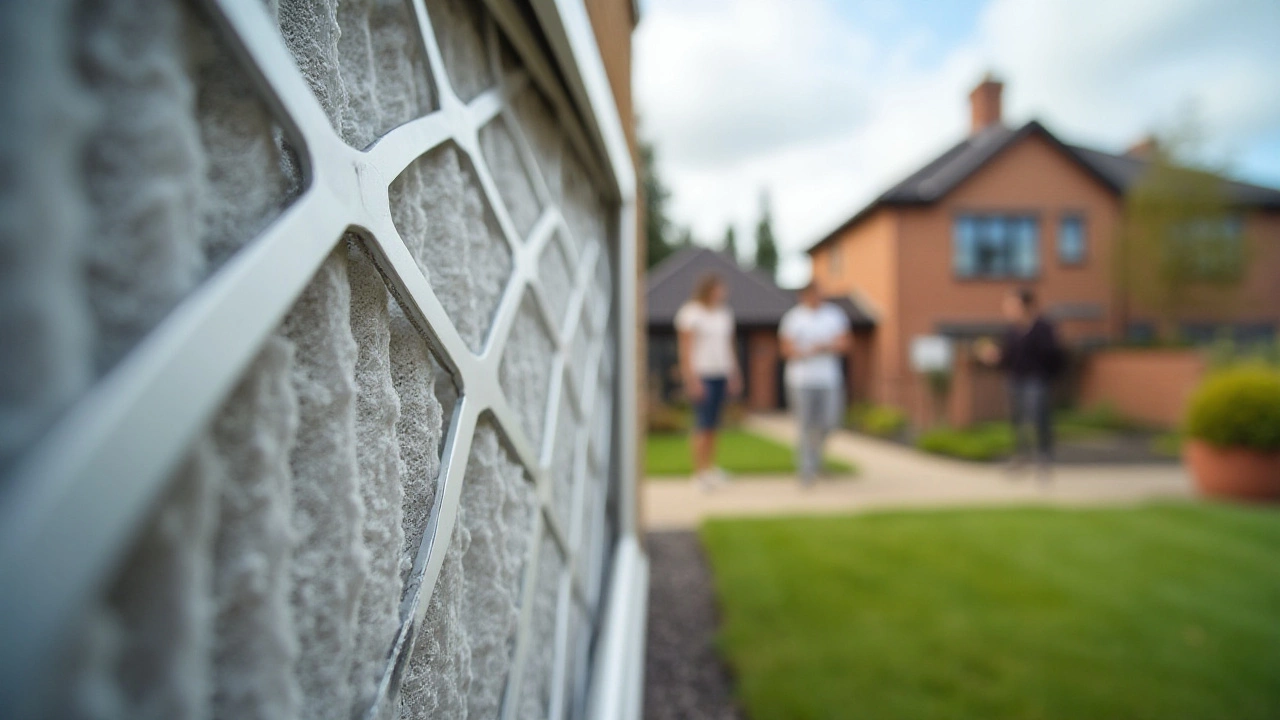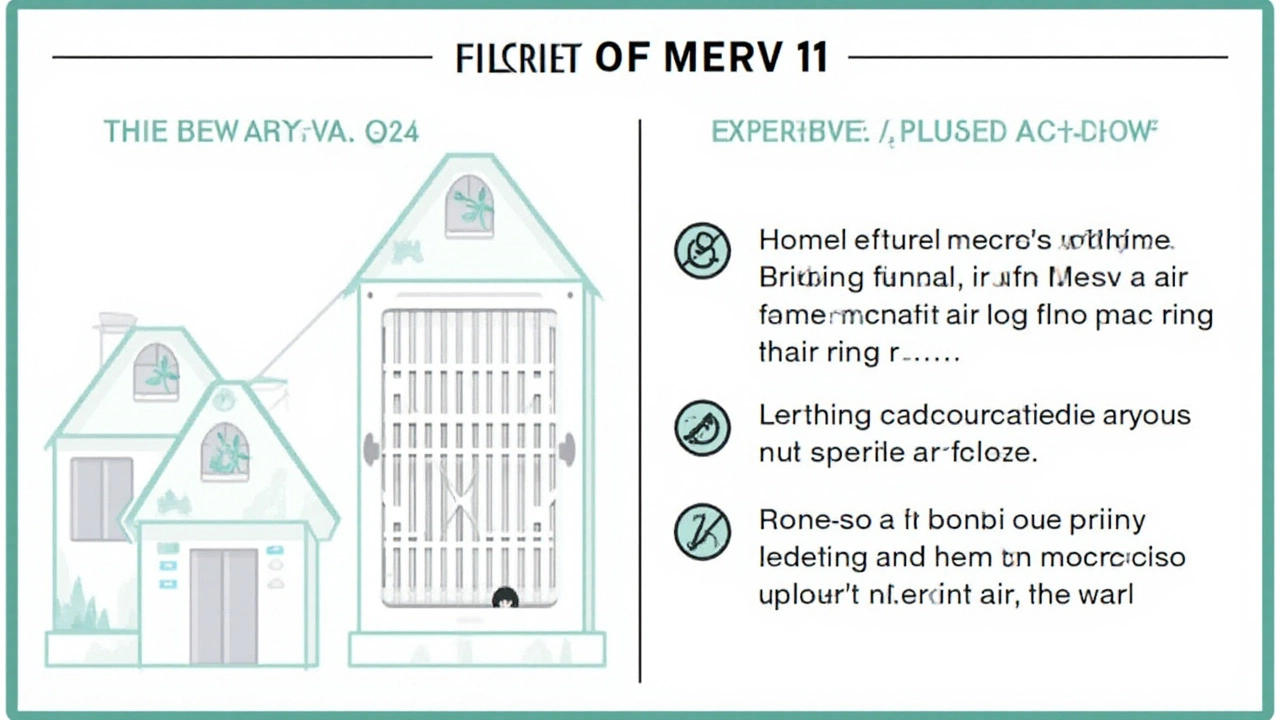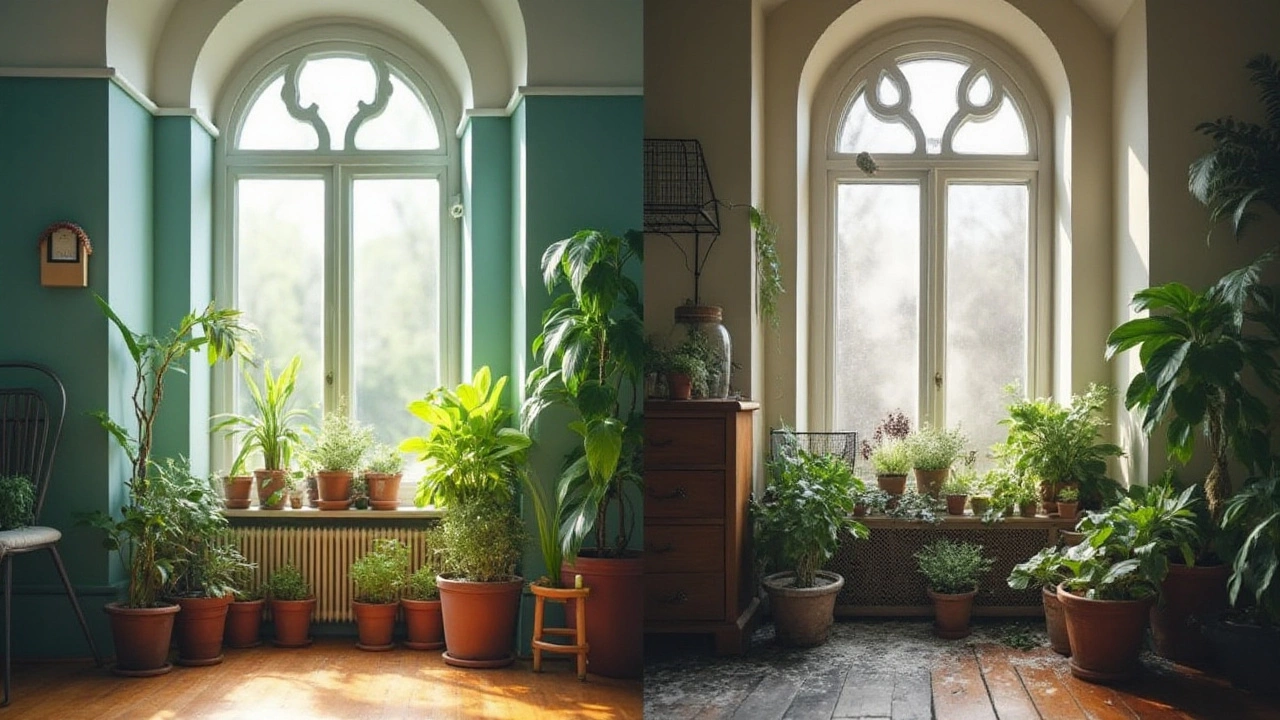When it comes to keeping the air inside your home fresh and clean, the importance of choosing the right filter for your HVAC system cannot be underestimated. MERV ratings are the yardstick by which filters are measured, with MERV 11 being a commonly discussed level, renowned for its performance.
For anyone who cares about household air quality and system efficiency, understanding these ratings is crucial. But should you opt for a MERV 11 filter? Let's break down what these filters offer and explore whether they're the right fit for your humble abode.
- Understanding MERV Ratings
- Pros and Cons of MERV 11 Filters
- Factors to Consider When Choosing a Filter
- Practical Tips for Home Filter Maintenance
Understanding MERV Ratings
The term MERV stands for Minimum Efficiency Reporting Value, a scale designed to evaluate the efficiency of air filters. Invented by the American Society of Heating, Refrigerating and Air-Conditioning Engineers (ASHRAE), this rating system ranges from 1 to 20. The higher the MERV rating, the finer the particles the filter can capture. A MERV 11 filter is capable of trapping smaller particles such as pollen, dust mites, and pet dander, making it a popular choice for homeowners seeking better indoor air quality.
Despite the apparent benefits, understanding the nuances of MERV ratings is crucial. Filters with higher MERV values allow fewer particles to pass through, but this increased filtration might strain an HVAC system, leading to increased energy consumption and wear. Therefore, it's not just about opting for a higher MERV; balance is key. According to ASHRAE, MERV 5 to 8 is generally adequate for home environments, where comfort and energy efficiency are both considered. Oftentimes, a filter like MERV 11 serves as a middle ground for those who have allergies or are concerned about air pollutants.
"While it's vital to keep our indoor air clean, it's equally important to maintain the efficiency of our HVAC systems," states Dr. John Smith, an HVAC expert and ASHRAE member.
To grasp the significance of MERV ratings, think about the filter's mesh size; higher numbers relate to tighter weaves. Though they trap finer particles, they demand a compatible HVAC system to function effectively. Not every system is built to handle high MERV filters, hence the importance of consulting an HVAC professional before making a switch. Understanding this balance will save homeowners time, money, and extend the life of their HVAC systems, while also ensuring their indoor environments remain as healthy as possible for all inhabitants.
For those curious about how MERV Ratings measure up, here's a quick glance flow of how different MERV levels handle very fine to coarse particles:
| MERV Rating | Particle Size | Typical Uses |
|---|---|---|
| 1-4 | >10.0 micron | Residential window air conditioners |
| 5-8 | 3.0 to 10.0 micron | Residential/commercial buildings |
| 9-12 | 1.0 to 3.0 micron | Superior residential, hospital labs |
| 13-16 | 0.3 to 1.0 micron | Hospital surgery, critical care |

Pros and Cons of MERV 11 Filters
Deciding on a MERV 11 filter for your home involves weighing its capabilities against its potential drawbacks. These filters are designed to capture particles as small as 1.0 to 3.0 microns, making them highly effective at removing pollutants like dust mites, pollen, and mold spores from the air. This can be crucial for households with allergy sufferers or respiratory issues. Higher filtration efficiency means that a MERV 11 filter can vastly improve the air quality within your home by capturing smaller and more numerous contaminants that lower-rated filters might miss.
But with great power comes great responsibility. The efficiency of a MERV 11 filter can also restrict airflow more than filters with a lower rating. If your home's HVAC system is not designed to handle the increased resistance, it may lead to reduced efficiency or put excess strain on the system's fan, which could escalate maintenance costs over time. In older systems, these issues might be more pronounced, and an overly restrictive filter could even lead to equipment failure. Homeowners need to consider if the added air quality benefit is worth the potential for higher energy usage.
Interestingly, cost is another factor. While MERV 11 filters generally carry a higher price tag than their lower-rated counterparts, they do not necessarily equate to prolonged filter life. Regular replacement is key to maintaining both indoor air quality and system efficiency.
"A high MERV rating might seem like a no-brainer for cleaner air, but always check with your HVAC professional to ensure you aren't paying for efficiency compromises in your system," suggests Randall Stevens, an HVAC expert.These filters undeniably perform well, but their high initial cost and maintained investment must align with your household's priorities.
It's also worth noting the potential closed-loop benefit of using a high MERV-rated filter, which is the reduction of dust accumulation within ductwork. Less planed dust could mean improved HVAC efficiency and less frequent duct cleaning, which could offset some of maintenance increments. Additionally, keep in mind that consistent upkeep by swapping filters regularly can mitigate the risk of system strain. With each swap, the blockages that cause airflow restriction are effectively reset. So, while a MERV 11 filter has its costs, it could ultimately be more beneficial, especially when health issues are a top concern.

Factors to Consider When Choosing a Filter
Deciding on the right air filter for your home's HVAC system is more than a simple purchase; it's an investment in the air you breathe every day. One of the foremost factors to evaluate is the MERV rating, as it determines the level of filtration. A MERV 11 filter can trap pet dander, mold spores, and even small particles from smoke or smog, making it an excellent choice for those with allergies or in locations with outdoor air quality concerns. However, such high filtration may also restrict airflow more than lower MERV-rated filters, potentially causing your HVAC system to work harder, which could lead to higher utility bills and wear.
System Compatibility
Ensuring that your HVAC system is compatible with a high-efficiency filter like a MERV 11 is crucial. Systems not designed to accommodate higher resistance may suffer decreased performance, or even damage in the long run. Check your system's manual or consult with a professional to understand the recommended MERV rating for your equipment. Some newer systems are adaptable and include options for settings to optimize airflow with high MERV-rated filters, but older systems might not have such capabilities.
Indoor Air Quality Needs
What are the specific needs of your household when it comes to air quality? If you, or someone in your family, suffer from asthma or have heightened sensitivity to dust and pollutants, using residential air filters with higher MERV ratings like MERV 11 could provide the relief and clean air necessary for better health. Reports from the American Lung Association suggest that improved indoor air quality contributes to better overall health outcomes. Evaluate whether your local environment or household activities (like frequent cooking or smoking) warrant stronger filtration.
"Indoor air quality has profound effects on the health and comfort of residents. Choosing the right filtration can mitigate risks and provide healthier living environments." — Environmental Health Expert
Budget Considerations
Filters with higher MERV ratings often come with a higher price tag. Alongside the initial cost, consider the frequency with which you will replace the filter; higher MERV filters may require more frequent changes to maintain performance and efficiency. A cost-benefit analysis might be wise to understand long-term expenses. While the upfront cost might deter some, the benefits of enhanced air quality can outweigh the initial expenses, particularly if you consider potential energy savings from running your system at optimal efficiency with less strain.
Maintenance and Accessibility
An often-overlooked factor is the ease of maintenance and replacement accessibility. Consider whether your filter choice is readily available in local stores or easily shipped to your home. And don't overlook the physical task of replacement. If replacing a filter is complicated or requires professional help, it may affect your decision. Simplifying the replacement process by choosing filters that offer easy installation can lead to consistent maintenance, which is key to sustained air quality and efficient system operation.
- Assess system compatibility - Check HVAC manual for MERV recommendations.
- Evaluate air quality needs - Consider household sensitivity and local pollution levels.
- Calculate budget impacts - Weigh upfront costs against long-term savings.
- Factor in maintenance - Choose accessible and easy-to-replace options.

Practical Tips for Home Filter Maintenance
Taking the plunge and opting for a MERV 11 filter means you're managing top-notch air quality in your home, but it doesn't stop there. Regular filter maintenance is key to ensuring that these filters work efficiently and your HVAC system runs smoothly. A proactive approach can save costs and improve air purity, thus providing a typically fresher environment. Begin by setting a regular schedule for checking and changing the filter. Experts suggest a monthly inspection for most residential systems, as many factors, such as pets, weather, and household activities, can affect longevity.
It's not just about the schedule, though. Understanding what you're looking for during these inspections is equally vital. Examine the filter closely for any dust buildup. A heavily clogged filter not only compromises the air quality but can also strain the HVAC system, causing unnecessary wear and potentially costly repairs. If DIY isn't your cup of tea, there's no harm in reaching out to a specialist annually. They can offer a comprehensive inspection of the entire HVAC system beyond what the regular homeowner sees, ensuring that the filter and system are aligned for optimal performance.
Speaking of professionals, the American Society of Heating, Refrigerating, and Air-Conditioning Engineers (ASHRAE) provides insightful resources and guidelines for homeowners about residential air filters. According to ASHRAE, "A proactive maintenance approach can enhance the lifespan of residential HVAC filters, ensuring that air quality doesn't come at the cost of energy efficiency." This indicates that proper maintenance can indeed offer dual benefits – improved air quality and a healthier, more efficient HVAC system operation.
Now, let's talk about storage. If you've ever bought filters in bulk (a financially savvy move), make sure they're stored correctly. Keep them in a clean, dry place away from heavy moisture and extreme temperatures. This ensures that when the time comes to swap out the old filter, the new one is in pristine condition to take over.
Finally, consider keeping a maintenance log. This can be as simple as a calendar reminder on your phone or a notebook kept in a convenient place. Document every replacement, inspection, and any HVAC service visits. This record acts as a trusty guide on the lifespan of your filters and can be invaluable should any issues arise.

